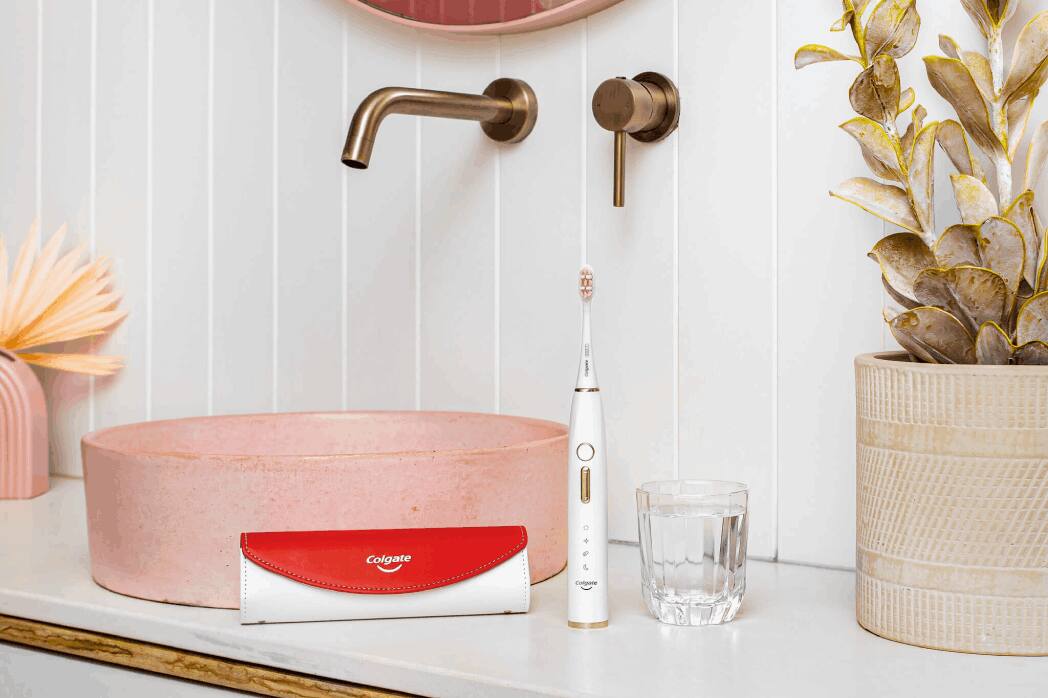Electric Vs Manual Toothbrush: Which is better?
Here are a few factors to find out what works better; electric toothbrush or manual toothbrush.
Working
Electric toothbrushes come with a rotating or oscillating head, which helps to remove plaque and bacteria from your teeth. On the other hand, manual toothbrushes rely on your brushing motion to clean your teeth. Also, you will have to apply minimal pressure on your teeth with an electric toothbrush vs a manual toothbrush.
Efficacy against plaque and teeth stains
Electric toothbrushes are more effective at removing plaque and bacteria from your teeth than manual toothbrushes. With good oral hygiene, you will also retain your teeth for a longer time. These facts have been backed by an 11‐year cohort study by the Journal Of Clinical Periodontology. Electric toothbrushes are also more efficient at removing stains from your teeth, which can make them look whiter and brighter.
Customizable Brushing
Electric toothbrushes come with different settings and modes, so you can customize your brushing experience to suit your needs. For example, if you have sensitive teeth, you can use a gentler mode on your electric toothbrush. You will not have this option with a manual toothbrush. And if you have braces, an electric toothbrush can get into all the nooks and crannies much better than a manual one.
Cost-effective
Though electric toothbrushes might seem like an unnecessary expense at first, they are more affordable or sulit, in the long run. This is because they usually come with longer battery life, require less maintenance and give you better results. Also, instead of discarding the entire body (as in the case of a manual toothbrush), you will only have to replace the heads of an electric toothbrush after the usual 2 to 6 months time period.
For people with limited dexterity
Electric toothbrushes are a great option for people with limited mobility, as they do not require any hand movement. All you need to do is hold the brush against your teeth, and it will do all the work for you. They also take less time to do the same work than a manual brush. Similarly, it also helps kids and the elderly who might not be able to brush their teeth effectively with a manual toothbrush.
Built-in timers
Most electric toothbrushes come with built-in timers that alert you when you have brushed for the recommended (two) minutes. This helps you brush your teeth for the recommended amount of time and achieve better oral hygiene.
Impact on brushing pattern
A recent study revealed that in comparison to manual toothbrushes, electric toothbrushes encourage concentrated and focused brushing patterns, which is great for your oral health. This is because, with an electric toothbrush, you are less likely to miss areas while brushing.
Are there any risks associated with using an electric toothbrush instead of a manual toothbrush?
There are no risks associated with using an electric toothbrush. Electric toothbrushes are, in fact, safe and allow you to tailor your brushing needs to your convenience with their different mode settings. Electric toothbrush with time makes sure that you brush your teeth for the correct amount of time. Therefore, electric toothbrushes are safe for all age groups, from kids to the elderly and people with limited mobility.
Why should you upgrade to an electric toothbrush?
If you find it difficult to brush your teeth for the recommended two minutes at a time, or if you have trouble reaching all the areas of your mouth, then you might need an electric toothbrush. Similarly, if you have braces or sensitive teeth, an electric toothbrush would be a great option for you.
Try the Colgate Electric Toothbrush. Here is why!
Colgate electric toothbrush is a sonic toothbrush that offers superior cleaning performance in stain removal and whitening efficacy versus a manual toothbrush. It empowers you to personalise your brushing experience with 33 custom combinations* through its 4 modes and 10 levels of vibration intensities. It has an ergonomic design and an equally functional mechanism and pairs with the Gum Care Brush Head with extra soft, tapered, and slim tip bristles for deep and gentle cleansing.
More reasons to try this electric toothbrush. It has:
smart coaching with a quad pacer that pulses when it is time to move to the next part of your mouth.
Smart pressure sensors alert you if you apply too much pressure.
Built-in timer to auto shut the brush (depending on the mode) as it recognises your brushing routine.
Rechargeable toothbrush battery lasts for up to 15 days with a 4-hour charge.
It is a soft bristle electric toothbrush that is safe and easy to use for all age groups.
*Squeaky Clean, Sparkle, and Gum Care modes have 10 levels of intensities; Night Spa has 3 levels of intensities.
Key takeaway
In conclusion, electric toothbrushes are definitely a step up from manual toothbrushes in terms of oral hygiene.
So, are electric toothbrushes better than manual toothbrushes? The answer is a resounding yes! They are more effective at removing plaque and bacteria from your teeth, they are easier to use, and they come with built-in timers to help you brush for the recommended time period. Additionally, they are more affordable in the long run, as you only need to replace the toothbrush heads every few months...sulit na sulit talaga! If you are looking for an electric toothbrush that is perfect for your needs, be sure to check out our selection of Colgate electric toothbrushes.
So, if you are looking for a toothbrush that can do it all, an electric toothbrush is the way to go! For more details you may refer to a dental professional.














